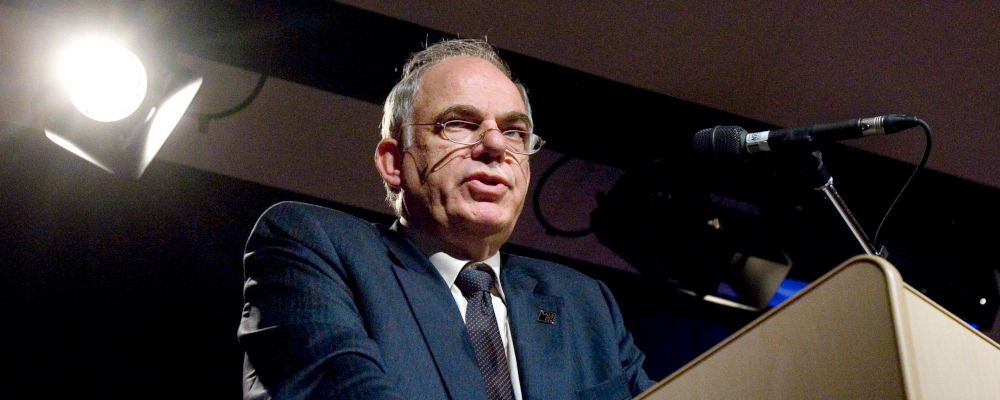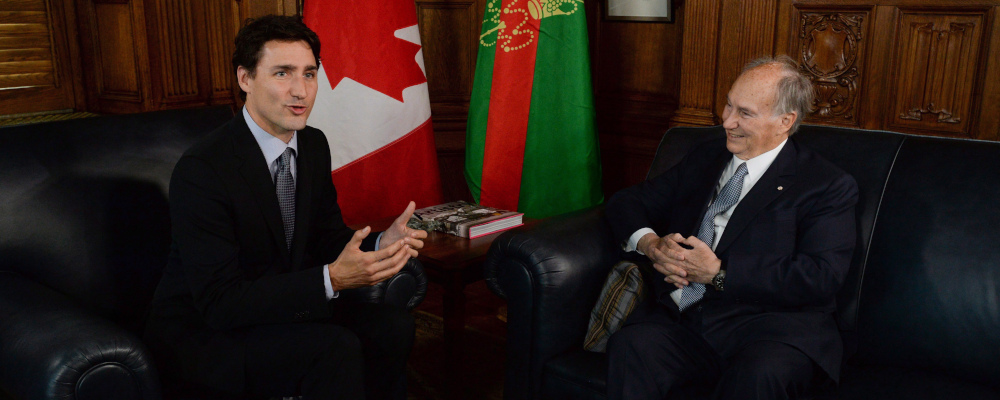Editor’s Note: Since this article’s publication, on the eve of their deadline, the federal government made interim Conflict of Interest and Ethics Commissioner Konrad von Finckenstein permanent, with a term of seven years. His appointment had the support of opposition parties.
Today, Konrad von Finckenstein, Canada’s acting Conflict of Interest and Ethics Commissioner (CIEC), will see his term expire. He’s been in the role since August 2023 after the position sat vacant for several months. Canada has now been without a permanent commissioner for more than a year. The previous interim ethics commissioner was effectively forced to step down after it came to light that she was the sister-in-law of Liberal cabinet minister Dominic LeBlanc.
Anyone who follows Canadian politics knows that Prime Minister Justin Trudeau (and his ministers) have found themselves on the wrong side of the ethics rules several times during his tenure. In fact, the two previous commissioners both concluded the prime minister had breached the rules on separate occasions—once over his vacation at the Aga Khan’s private island in the Bahamas and then again over influencing then justice minister Jody Wilson-Raybould over SNC-Lavalin. Recent questions about a Jamaican vacation gifted to him by a friend have also raised eyebrows. The findings of commissioners do not seem to be discouraging our politicians from behaving badly. Regardless of party, naming and shaming does not appear to be working.
At the time of writing, the government has not yet announced the current interim commissioner’s successor. The media and opposition parties are increasingly inquiring about when von Fickenstein’s mandate ends.
This context of heightened interest and attention is an opportune time to discuss how the appointment process works and whether it should be improved. It is also a good time to talk about the job of Conflict of Interest and Ethics Commissioner itself, which seems to be getting increasingly more difficult to fill.

Why should we care?
The primary job functions of the CIEC are to provide advice about the Conflict of Interest Act and Code for Members of the House of Commons, investigate and make determinations about alleged contraventions, and administer the rest of the Act and Code.
Yet, despite the CIEC’s “independent” role and its relationship to Parliament, the appointment process has tended to be openly partisan. The position is posted online as a matter of good practice but it’s unclear how many applications, if any, are received. Von Finckenstein, for instance, told a parliamentary committee he didn’t even apply for the job. Instead, he was contacted directly by the Prime Minister’s Office.
This approach raises questions about the appointment process for the CIEC, including how the government fulfills its legislative expectation to consult with opposition parties to find the right person for the job.
It must also be noted that even in instances where these consultations occur, it’s still the case that if the governing party has a majority of the votes in the House (whether directly or because of an agreement, etc.), it can effectively hand-select a commissioner and appoint them with an easy resolution.
The key point here is that being consulted does not mean the other parties have to approve the proposed candidate. As long as the governing party can whip the votes needed to pass a resolution, they can effectively appoint whomever they like the most. This is precisely what happened with both the current and the previous commissioner.
How should the appointment process work?
The impending appointment of a new commissioner represents an opportunity for parliamentarians and the broader public to scrutinize the appointment process and consider better approaches, which could allow for something closer to real independence.
One option would be to strike a parliamentary committee comprised of members from every official party with the expectation that they reach a unanimous agreement on the individual selected. If the appointment must pass through cabinet and be made by the Governor in Council, then it is also essential that the custom be for a quick approval rather than renewed partisan scrutiny.
Given the CIEC’s responsibility for ensuring MPs comply with disclosure and transparency requirements, critics have also called for the CIEC to disclose their outside financial interests. I’m not convinced this disclosure needs to be publicly available (we don’t want MPs under investigation to make donations to the CIEC’s favourite charity, for example), but I do think there must be a mechanism in place to ensure that the CIEC does not have any real or apparent conflicts of interest that could impact them in the performance of their official duties. An all-party appointment committee could perhaps be charged with overseeing compliance with any such rule(s) before an appointment is made.
Is a better appointment process all that is needed?
Of course, a better appointment process isn’t the only reform that ought to be considered to the federal ethics regime. Every CIEC has either published a list of recommendations for ethics law reform or made suggestions directly to parliamentary committees (for example: 2013, 2015, 2022, and 2024). There has been palpable frustration among the CIECs (e.g., 2018, 2023) with respect to Parliament’s lack of interest in modernizing the Act and Code. The current commissioner even appeared before the Standing Committee on Access to Information, Privacy and Ethics (ETHI) and told members that their criticism of “sponsored travel” is a problem of their own making. Commissioners have long asked that rules around sponsored travel be tied to acceptability standards, yet members have outright refused. This disinterest in improving the Act and Code has left the CIEC mostly toothless, yet subject to constant criticism by a general public that feels the office should be doing more to hold officials accountable when they violate the rules.

We need to care more about our ethics watchdogs
With a general election due in 2025, now is the time to really amplify the concerns many of us have been expressing about public sector ethics rules. If Liberals promise to make changes, Conservatives will follow suit, and vice-versa. The promise of ethics reform worked for Stephen Harper in 2006, and even though the laws he put in place were not perfect, forward momentum, however incremental, is better than simply continuing to stand motionless in the sludge we find ourselves in now.
Currently, the commissioner can only deliver a maximum “administrative monetary penalty” of $500 dollars against a public office holder (as defined under the Act) who fails to meet a filing requirement. No monetary penalties exist for violating the actual ethics rules.
Without reform, the job risks becoming too thankless and undesirable for anyone with the right credentials to want to take on. Why subject yourself to the constant barrage of criticism in order to administer ethics regimes that are toothless, and that clearly no longer help support and enforce standards that meet the public’s expectations?
While MPs should not leave the position vacant again for an extended period of time, they will continue to have a hard time filling it if they do not actively commit to modernizing both the appointment process and the ethics rules in a way that is clearly non-partisan and that rises above blind self-interest. We must return to a period of integrity in public office, where there is a culture of accountability among MPs who hold themselves to high standards, rather than our modern-day culture of compliance.




